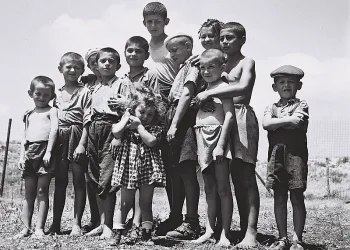Standing at the heart of Brussels diplomacy, Kaja Kallas offered a decisive overview of the EU’s foreign policy focus just before the Foreign Affairs Council convened.
With pressing issues from Ukraine to Gaza on the table, her remarks underscored Europe’s urgent need for unified action.
1. Ukraine: Weapons, Aid, and Sanctions
Kallas emphasized the EU’s strong backing for Ukraine, praising recent U.S. commitments to supply weapons. She also stressed the need to finalize the Ukraine sanctions package, the 18th such effort aimed at curbing Russia’s aggression.
-
A political agreement on the sanctions package is imminent.
-
The EU remains committed to military and financial aid for Ukraine.
“We hope to reach a political agreement on the 18th sanctions package. We are very, very close,” she noted.
2. Gaza: Ceasefire Elusive, Humanitarian Needs Urgent
While welcoming signs of increased humanitarian aid in Gaza—such as improved electricity lines and more open border crossings—Kallas warned the humanitarian crisis remains catastrophic without a ceasefire.
The EU has agreed on an implementation plan with Israel, but she stressed, “It’s not about the paper, it’s about what happens on the ground.”
Midpoint Summary Table
| Region | EU Concern | EU Response/Position |
|---|---|---|
| Ukraine | Military aid, Russia sanctions | Finalizing Ukraine sanctions package, more aid |
| Gaza | Humanitarian crisis, ceasefire | Agreement with Israel on ground-level improvements |
| Iran | Nuclear talks, JCPOA deadlines | Ready to resume diplomatic track |
| Georgia | Democratic backsliding | Possible visa-free suspension, new sanctions |
| Moldova | Election interference risks | Discussing support against foreign malign influence |
3. Georgia: Backsliding Prompts Possible Visa Suspension
The EU is closely monitoring Georgia’s political direction, with concerns about its judicial system and treatment of protesters. Kallas confirmed that sanctions—including targeting two judges—are being considered.
“All options are on the table, including suspension of the visa-free regime,” she said.
4. Broader Regional Focus: Iran and Moldova
The EU plans to re-engage diplomatically with Iran, particularly as JCPOA deadlines approach. For Moldova, the upcoming elections in September have prompted discussions on countering foreign interference.
Diplomacy in Motion
Kallas highlighted the difficult negotiations required within the EU’s 27-member structure, but maintained optimism:
“It is hard sometimes, but eventually we come to decisions—which is important.”
While internal blockages may delay certain actions, she remained firm on the need for coordinated, values-driven EU policy in the face of global instability.
In Conclusion
Kallas’ arrival statement offers more than a snapshot—it reflects a region grappling with intersecting crises. From reinforcing the Ukraine sanctions package to tackling humanitarian and democratic challenges, the EU faces decisions that will shape its foreign policy identity for years to come.
This press briefing makes one thing clear: action is no longer optional—it’s urgent.
Sources: European Union.
Prepared by Ivan Alexander Golden, Founder of THX News™, an independent news organization delivering timely insights from global official sources. Combines AI-analyzed research with human-edited accuracy and context.






